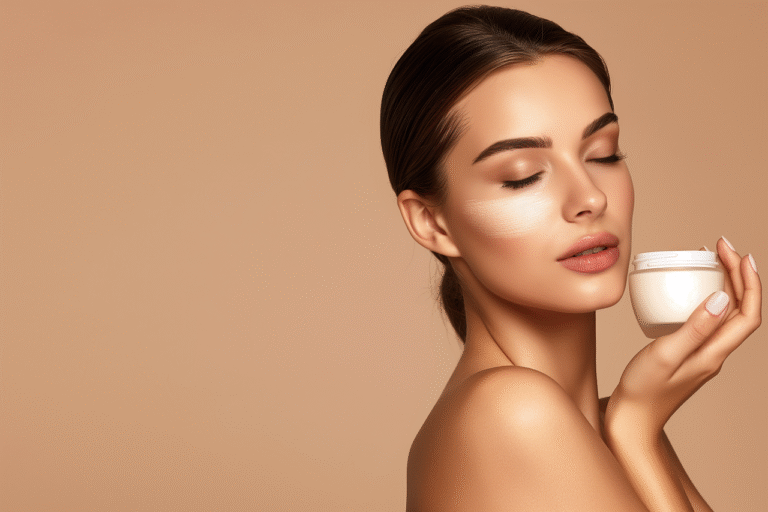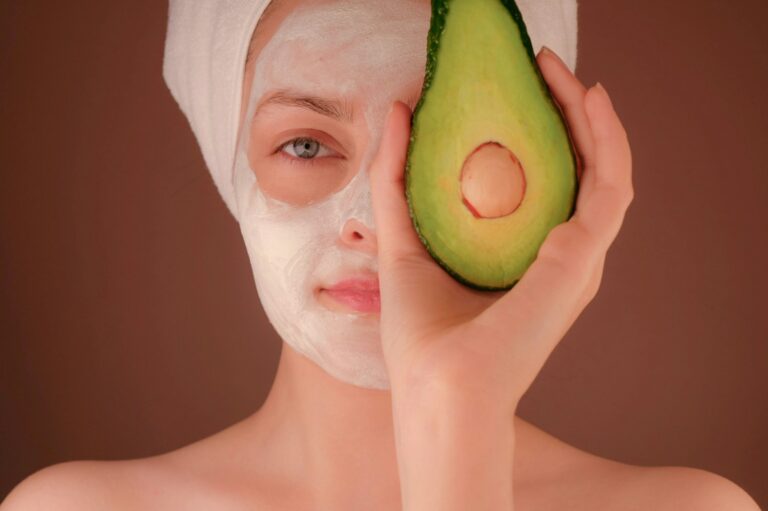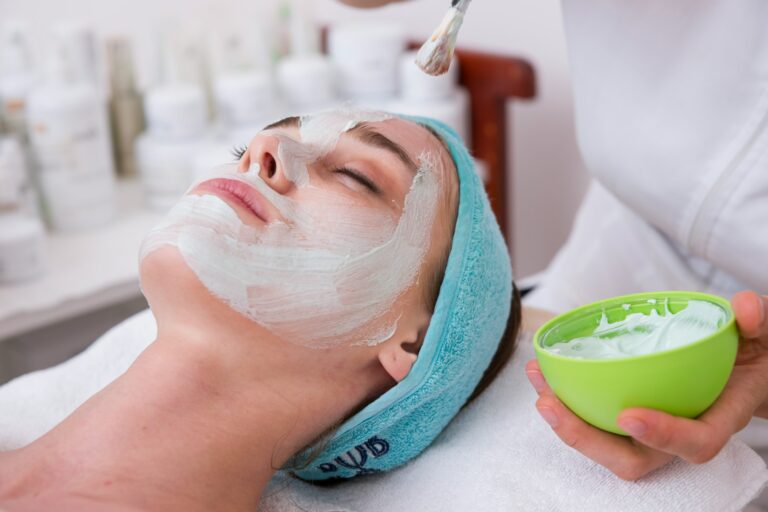With the rise of mask-wearing during these times, many of you may have noticed an increase in breakouts known as maskne, which can result from friction, sweat, and bacteria trapped under your face covering. To help maintain your skin’s health and minimize the occurrence of this condition, it’s important to adopt effective strategies. In this post, you will discover practical tips to manage and prevent maskne, ensuring that your skin stays clear and comfortable, even while keeping safe.
The Root Causes of Maskne: A Closer Look
How Facial Coverings Disrupt Skin Balance
Wearing a facial covering creates a unique environment for your skin. The fabric traps heat and moisture, leading to increased humidity against your skin’s surface. This disrupted equilibrium often results in an overproduction of sebum, your skin’s natural oil. When excess sebum combines with dead skin cells and bacteria, the chances of clogged pores and breakouts significantly rise. You may notice areas that have constant contact with your mask, like your cheeks and chin, becoming especially prone to irritation or acne flare-ups.
In addition to oil buildup, friction from your mask can irritate the skin barrier. When the barrier is compromised, it becomes more susceptible to inflammation and breakout triggers. Acknowledge that the choice of material is also a factor; some fabrics may be coarser and exacerbate irritation more than others, making it vital to select soft, breathable options to minimize skin disruption.
The Role of Sweat and Bacteria in Acne Formation
As you wear your mask for extended periods, sweat accumulates underneath. This moist environment not only promotes bacterial growth but also creates a breeding ground for acne-causing organisms. Research has found that the presence of bacteria such as *Propionibacterium acnes* is crucial in triggering inflammatory responses, leading to cystic acne. Consistent moisture from sweat paired with the warmth of your mask allows these bacteria to thrive, making it imperative to address both sweat management and skin hygiene.
Furthermore, bacteria can interact with the natural oils of your skin, creating a perfect storm for acne formation. In fact, studies have shown that during mask-wearing periods, individuals experience a significant uptick in not just latent acne but also new cystic breakouts. You may need to adjust your skincare routine to include products with antibacterial properties or gentle exfoliants to keep bacteria in check and maintain a clearer complexion.
Essential Skincare Practices to Combat Maskne
Cleansing Techniques for Mask-Wearers
You may find that washing your face effectively plays a pivotal role in managing and preventing maskne. After wearing a mask, especially for extended periods, your skin accumulates sweat, oil, and bacteria. Opt for a gentle cleanser that provides thorough cleansing without stripping the skin of its natural oils. A cleanser formulated with salicylic acid can be particularly beneficial, as it penetrates pores and helps to mitigate breakouts caused by trapped debris. By incorporating a cleansing ritual right before and after you wear your mask, you can significantly reduce the likelihood of developing annoying blemishes.
Your technique matters just as much as the product you choose. Use lukewarm water to avoid irritating your skin further and gently massage the cleanser for at least 30 seconds, ensuring you focus on areas that come into direct contact with your mask. Rinse thoroughly and pat your face dry with a clean towel. This not only refreshes your complexion but also sets a clean canvas for any additional skincare treatments you may apply.
Incorporating Non-Comedogenic Products
A smart way to enhance your skincare routine is to opt for non-comedogenic products, which are specifically designed to prevent pore clogging. This is vital for individuals who wear masks, as the combination of moisture, heat, and friction can lead to an uptick in acne. Look for makeup, moisturizers, and sunscreen labeled as non-comedogenic to ensure they won’t contribute to the maskne dilemma. These products tend to contain lighter, more breathable ingredients that allow your skin to breathe while still providing hydration and protection.
Evaluating your current skincare lineup is a proactive approach. Switch to a lightweight moisturizer containing glycerin or hyaluronic acid, both of which effectively hydrate the skin without triggering breakouts. Choosing mineral-based sunscreens can also help, as they often contain fewer irritating ingredients than chemical formulations. Over time, utilizing non-comedogenic products not only enhances your skin’s resilience against maskne but supports overall skin health, ensuring you feel more confident beneath your mask.
Should You Change Your Diet?
Foods That Encourage Clear Skin
Your diet can significantly influence the state of your skin, especially when it comes to combating maskne. Incorporating foods rich in antioxidants, vitamins, and minerals is key to achieving a clearer complexion. For instance, fruits and vegetables that are high in vitamins C and E, such as oranges, berries, and spinach, can facilitate collagen production and protect your skin from free radical damage. Additionally, Omega-3 fatty acids found in fatty fish like salmon and walnuts serve to reduce inflammation, which is beneficial in minimizing acne outbreaks.
Moreover, incorporating whole grains and legumes into your meals can help stabilize blood sugar levels. Fluctuations in blood sugar have been linked to increased sebum production and acne flare-ups. Adopting a balanced diet that prioritizes these food groups may not only support your overall health but also contribute significantly to achieving and maintaining clear skin.
The Impact of Hydration on Skin Health
Staying hydrated plays a vital role in maintaining your skin’s health, particularly under the conditions created by wearing a mask. Water facilitates the removal of toxins from your body, which can, in turn, reduce the likelihood of breakouts. Your skin benefits most from being well-hydrated, as adequate moisture levels can help maintain its elasticity and softness, preventing excessive dryness and irritation caused by prolonged mask use.
Specific guidelines suggest that adults should aim for about 2-3 liters of water daily, depending on various factors such as activity level and climate. Additionally, consuming water-rich foods like cucumbers, watermelon, and celery can also enhance your hydration levels while providing other beneficial nutrients for your skin.
Innovative Solutions Beyond Skincare
Choosing the Right Mask Material
Your choice of mask material can significantly impact not just your comfort, but also your skin health. Opt for fabrics like cotton, which is breathable and less likely to irritate your skin. Avoid synthetic materials that trap moisture and heat, providing an ideal breeding ground for bacteria. Consider masks featuring a moisture-wicking layer to help keep your skin dry while you go about your day. Brands that prioritize dermatological testing are worth seeking out, as they often create hypoallergenic options that reduce the risk of maskne. If you have sensitive skin, selecting a mask with fewer layers and simpler materials can also mitigate skin irritation.
Frequency of Washing and Replacement Strategies
Establishing a routine for washing your masks is vital to preventing maskne. Ideally, you should wash your cloth masks after each use to combat the accumulation of oil, sweat, and bacteria. For those using disposable masks, switching them out regularly is necessary—ideally at least once every four hours. Beyond just keeping them clean, the lifespan of the mask is also a consideration. Look for signs of wear, such as fraying or weakened elastic straps, as these can compromise the mask’s fit and effectiveness.
A practical approach to managing mask hygiene includes creating a rotation system for your masks. Having multiple masks on hand allows you to wear a fresh one each day while ensuring that others can be thoroughly cleaned. Keep a designated bag for used masks and wash them simultaneously, saving time and ensuring you never run out of options. This systematic care not only promotes healthy skin but can also enhance your overall comfort during prolonged wear.
Psychosocial Aspects of Maskne: The Emotional Toll
The impact of maskne extends beyond physical skin issues; it can significantly affect your emotional well-being. The frustration of dealing with breakouts can trigger feelings of self-consciousness and anxiety, particularly in a world where your face is partially covered. Reports suggest that individuals experiencing persistent skin conditions often face psychosocial challenges, including decreased self-esteem and increased social anxiety. You may find yourself avoiding social situations or feeling less confident during interactions, which only compounds the challenge of maintaining a positive self-image.
Managing Stress and Anxiety Related to Skin Issues
Connecting skin issues to emotional distress is vital for improving overall mental health. Engage in self-care routines that include mindfulness practices, such as meditation or yoga, which have been shown to reduce anxiety levels significantly. For instance, dedicating just ten minutes a day to deep breathing exercises can strengthen your ability to cope with the daily stressors associated with maskne. Seeking support from friends, family, or even professional therapists can offer helpful perspectives, as discussing your feelings allows you to alleviate some of the burdens associated with your skin condition.
Building Confidence While Wearing a Mask
Finding ways to maintain your confidence while wearing a mask can significantly alter your perception of wearing one. Opt for masks that echo your personal style—colorful, patterned, or stylish fabric masks can shift focus from your skin to your fashion sense. Incorporating a little makeup, such as eye-catching eye makeup or well-groomed brows, can draw attention upward and enhance your look. Additionally, reminding yourself that maskne is a common experience during these times can diminish feelings of isolation and help you feel more connected to others who are facing similar challenges.
Consider engaging in affirmations or positive self-talk about your appearance. Celebrating your unique features and focusing on aspects you enjoy about yourself can foster a more positive mindset. Small changes, such as choosing a favorite lip balm or a statement necklace that peeks out from beneath your mask, can be great confidence boosters. Embracing these methods not only enhances your self-esteem but also makes wearing a mask feel less like a burden and more like a choice that reflects your personality.
Conclusion
Conclusively, managing and preventing maskne requires a combination of proper skincare practices and mindful choices in your daily routine. You should prioritize keeping your skin clean by using gentle, non-comedogenic products tailored to your skin type. Regularly washing your face before and after wearing a mask, along with choosing the right fabric that minimizes friction, will help you maintain a healthy complexion while adhering to safety measures. Additionally, considering the frequency of using masks and taking breaks when possible can significantly reduce the occurrences of acne and irritation.
By implementing these tips, you can effectively mitigate the impact of mask-wearing on your skin. It’s vital to be patient, as it may take time to see improvements. You might also benefit from consulting a dermatologist for personalized advice or treatment options should you experience persistent issues. Ultimately, consistent care and appropriate preventative measures can ensure that you maintain not only your health but also your skin’s well-being during these challenging times.







